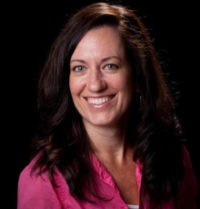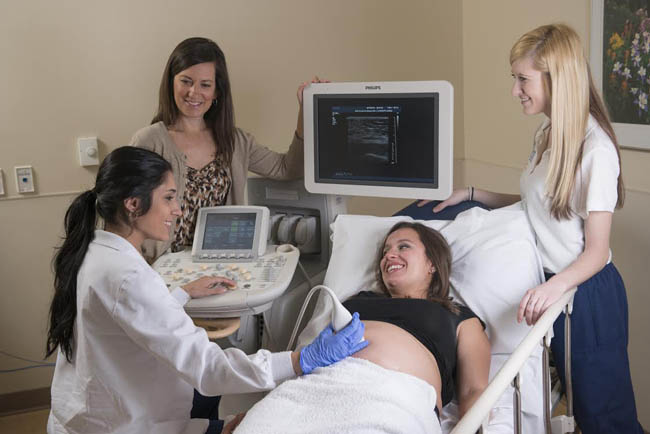As technology continues to evolve and permeate the field of healthcare, health science educators are utilizing advanced simulation training to prepare students for the challenges of the clinical environment. Medical facilities are also turning to simulation tools to help health professionals improve processes in the workplace.
Sonography instructors have seen tremendous value for their students when incorporating simulation exercises into their course work. Tara Dianna, Program Chair of Diagnostic Medical Sonography at Pennsylvania College of Health Sciences, recently took some time to discuss a few of the primary benefits their program has enjoyed as a result of simulation training.
How Sonography Educators Are Using Simulation Technology
Dianna’s team of instructors use multiple ultrasound phantoms in their lab, so students can practice proper technique and learn how to address real life challenges in a controlled scenario. These ultrasound phantoms are test objects—often made to look like a part of the human body—that contain tissue-mimicking material to simulate certain acoustic and physical properties of human tissue.
“There are multiple exams that we cannot practice in the lab,” explains Dianna, “simulation training helps the student prepare for these exams before entering the clinical area.” For example, individuals training for a career as an ultrasound technician can now learn transvaginal and scrotal study procedures using simulation exercises, decreasing the student’s anxiety before scanning a patient.
Benefits of Simulation Training
For sonography students, ultrasound phantoms have enhanced the learning experience, making them feel more confident when scanning patients in the clinical environment. “This not only helps the student, but the patient is more comfortable being scanned by a student when he or she displays confidence in performing the procedure,” stated Dianna. Instructors employing simulation exercises have witnessed positive outcomes among other disciplines as well, such as nursing.
In August 2014, the National Council of State Boards of Nursing (NCSBN) released the findings of its award-winning research study on replacing clinical hours with simulation in pre-licensure nursing education. The study concluded that “substituting high quality simulation experiences for up to half of traditional clinical hours produces comparable end-of- program educational outcomes to those students whose experiences are mostly just traditional clinical hours and produces new graduates that are ready for clinical practice.”
Advantages Within the Workplace
The benefits of simulation learning in healthcare extend far beyond just one discipline. Medical professionals who have been in the workforce for many years are using simulation to get acquainted with new technologies and procedures, with positive outcomes.
One of the greatest benefits of simulation training within the workplace is its ability to teach healthcare workers to make better and quicker decisions when in real-life trauma situations.
Simulation can also be used to identify and solve a wealth of workplace issues, including employee nonproductive time, workflow inefficiencies, and lagging transitions between teams. Properly designed simulation can help address these problems and improve facility processes.
Medical professionals and healthcare students, especially those in diagnostic medical sonography programs, should expect to participate in simulation exercises much more regularly as this technology continues to advance.
About Pennsylvania College of Health Sciences

Tara Dianna, Program Chair of DMS at Pennsylvania College of Health Sciences
A dynamic and rigorously academic institution, Pennsylvania College of Health Sciences is a private, accredited, four-year college offering certificate and associate degree programs in diagnostic medical sonography, along with many other healthcare degree programs.
PA College was one of ten sites to participate in the NCSBN landmark study on simulation learning from 2011-2013.

